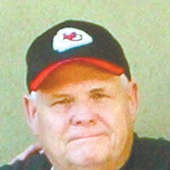The Downton Marathon
There is a saying that love and hate are very similar. This past weekend, I experienced both sentiments, in almost equal proportions. My PBS channel aired the entire six years of the "Downton Abbey" series. There was no way I could watch all of the episodes, reminding myself, there were football playoff games and other items on my agenda but as you might suspect, that plan in no way prevented me from tirelessly watching multiple reruns.
In television history there have been several comparable series that many of us viewed over extended periods of time. There were mini series like, "Roots," "Centennial," "Rich Man, Poor Man," and the "Thorn Birds," to name a few.
Famous shows like "MASH" and "Dallas," kept viewers tuned in for years, and some of their episodes set viewing records. Comedies like "I Love Lucy," "Happy Days," and "Cheers," never fail to make us laugh even years later.
As I was watching the Downton reruns, I tried to assess just what it was about this particular show that so intrigued me and millions more.
The first and most obvious reason that the show was so popular has undoubtedly to do with the masterful quality of the writing and acting. The creator and main storyteller, Julian Fellows, displays a talent worthy of the great authors of English language history.
The cast is one of the best ever assembled. Perhaps none exhibits that better than the part of the Dowager Countess of Grantham, portrayed by the legendary Dame Maggie Smith. Once again she was able to make me laugh out loud, as she delivered one of her barbs.
The second insight regarding this show has to do with the "classism," that it so eloquently portrays for the viewer. While we have levels of wealth and structure in America, our Mother Country still maintains a traditional and in some cases rigid "peer" system.
The show allows us to see the distinct perspectives, practiced by the nobility characters, and their counterpart serving class. In America we are raised to believe that a person can rise as far as their hard work, education, and ambition, can take them. In England, that was not the case. During the show's time period, which spans from the sinking of the Titanic in 1912, to New Years Eve 1925, we begin to see infinitesimal, but similar changes, arrive in traditional British class society.
The mobility of the different economic and social classes in both countries was enhanced by the World Wars of the 20th Century. Many people from both countries returned with skills and freedoms they had earned during those conflicts.
Of course, any successful entertainment series, owes a lot to the theme of love. There is no shortage of that emotion in Downton Abbey. You cannot watch, without pulling for the heroines to find the love they so desperately seek.
Death also contributes to the tragedy of the series. On several occasions, a demise was sudden, and came at just the moment within the plot, when everything seemed so right. Just as in life, the show hit us with the bitterness of loss.
My most intense feelings that the show evoked had to do with a more mystical topic. The themes of the show should have been for the most part unfamiliar to me. That was far from the case.
As I watched each episode, the lives of those people, the locations, the clothes, the music, and so much of each scene, seemed just like a part of my own history and background. The French have a great term that describes how Downton Abbey makes me feel, it is called "deja vu." The definition is: "the illusion of having previously experienced something actually being encountered for the first time."
Over and over again, in scene after scene, there were memories that appeared so recognizable to me. I am not a believer in the mystic world, but trust me when I say that the feelings of familiarity I gained were elicited directly from those past scenes and settings.
Perhaps one scene from the show will demonstrate how I reacted. The family had gone to visit relatives in a castle in Scotland. That evening there was a party. Suddenly several fiddlers began to play this wild music, which we know as a "Highland Reel."
The family began dancing their individual wild steps, and I was barely able to remain seated. It was as if my ancestors from generations in the past were calling to me to join them. That reel was, as perhaps an old Scotsman would have exclaimed, "as familiar to me as the back of me hand!"
Our collective history in our country is forever tied to our British Island ancestors. Over and over, I realized just how much I feel I share with those times from the past.
Dame Maggie Smith in her final scene as the Dowager Countess is asked a question by one of her younger relatives, "What makes we English the way we are?" When she replied, I was again reminded of my maternal Grandmother Helen Hart. They looked very similar, and both had this slight knowing hint of a smile whenever they spoke to you.
Lady Grantham's response was simple and direct, but it left so much for contemplation. She replied, "Most think we English are what we are, because of our history, but I suspect it is in fact, to do more with our weather!"
What a profound statement, and she was so right. Even in this country we are part of what history has made us, much from our English Empire ancestors, and even more from the way we learned to live in the New World.
She was in my humble opinion quite right about the weather connections as well, but it made me wonder, just when was she ever in Vernon County?

